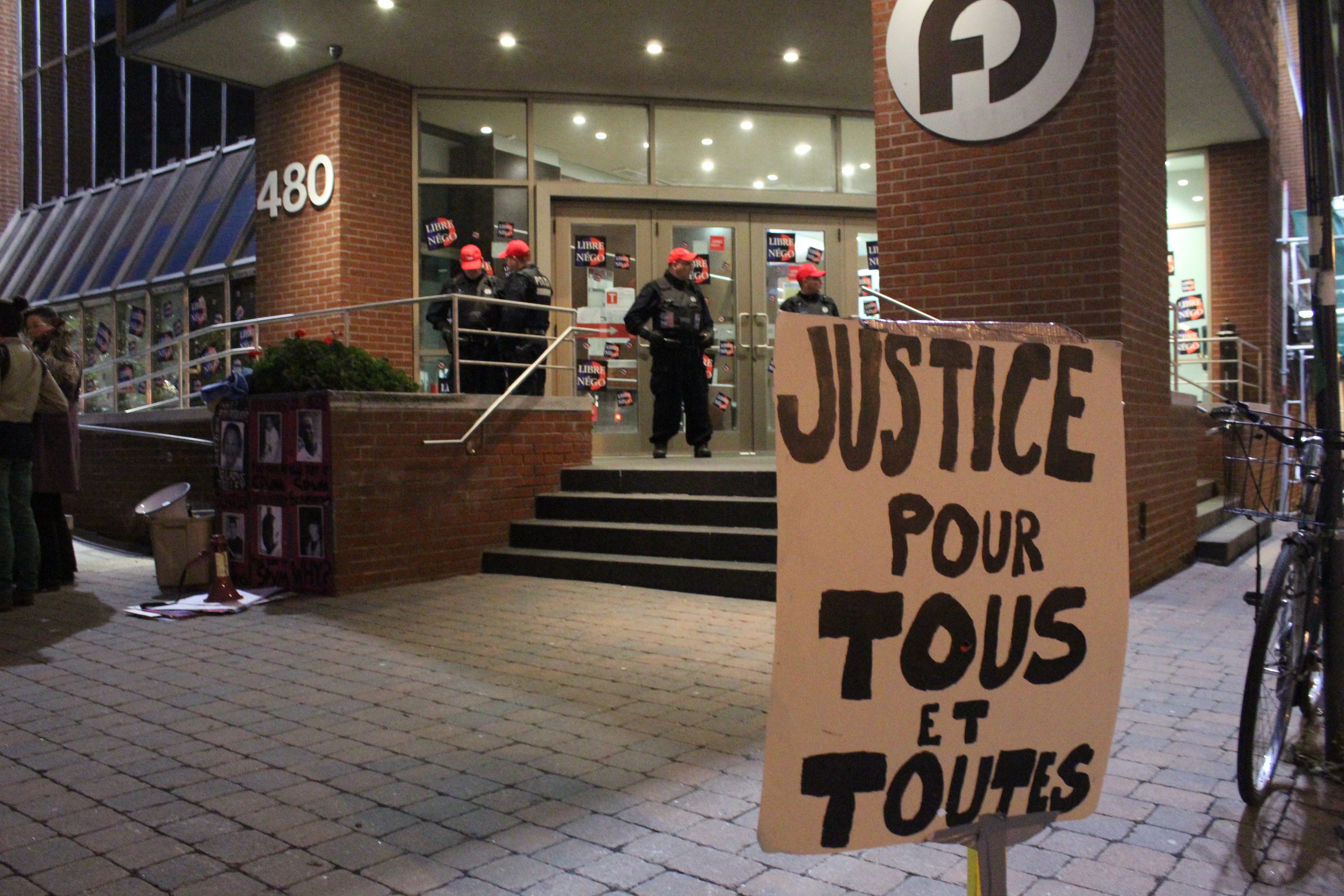Friends and families of victims speak out against police violence
Dozens of people gathered outside of the Fraternité des policiers et policières de Montréal office Thursday night for a vigil remembering victims of police killings.
Taking place just across Gilford Street from the Laurier metro station, the vigil was organized by Justice for the Victims of Police Killings Coalition, an organization created by family and friends of people who died as a direct result of police action and intervention. Police stood guard in front of the police building throughout the evening, overlooking the vigil as family of victims called out for independent civilian inquiries into police killings.
The sixth-annual Montreal event was organized in solidarity with a national day of protest in the United States coordinated by the October 22nd Coalition to Stop Police Brutality. Organizers of the vigil said more than 60 people have been killed in Montreal by police since 1987.
Julie Matson, one of the founders of Justice for the Victims of Police Killings Coalition, lost her father in 2002 after he died while in police custody. After taking part in a panel of people who have lost a family member to police killings at a conference in 2010, she said she realized how important it was for the families of victims to have someone by their side who understands what they’re going through.
“Most people just have no idea how to treat you when they find out that not only has your loved one passed away, but in such a violent way, most people … don’t know how to reply to you,” said Matson. “[With the coalition], it doesn’t matter because they all know. There was this amazing solidarity that I’ve never experienced before.”
Matson was one of the speakers at the vigil, sharing the story of her father’s death. Ben Matson was involved in a yelling-match with an off-duty officer in Vancouver over a parking dispute. Police were called and, Julie Matson said, beaten and arrested. Julie Matson said he was kept in a prone position (lying flat on his chest on the ground), which caused him to asphyxiate—and none of the officers involved were charged. She called the fight against police brutality “an uphill battle,” because police are a “brotherhood that keeps protecting [itself] at every single step.”
Bridget Tolley, founder of Sisters in Spirit Vigils which is part of the Native Women’s Association of Canada, also spoke about the death of her mother, Gladys Tolley, who was struck and killed by a Sûreté du Québec squad car in the Kitigan Zibi Reserve near Maniwaki in 2001. Bridget Tolley questioned the reports and statements from that night and has been calling for an independent investigation of the incident. She also said the investigation of the incident was led by the brother of the officer driving the car.
Then, Tolley turned to the police overlooking the vigil and addressed them directly.
“How wrong is that?” she asked the officers. “Since when is it allowed for a brother to investigate another brother on the scene of an accident after striking and killing someone? Since when?”
Tolley said despite having pushed for an independent investigation into her mother’s death for the past 14 years, she will continue to fight until the case is reviewed.
“I can’t move on,” she said. “I’m a great-grandmother, I have a one-year-old great-granddaughter, and I think about her and I don’t want this to happen to any other families.”
